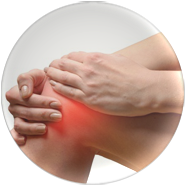Carbohydrates in Exercise
Carbohydrates are a group of foods made from varying numbers of a basic chemical unit known as a saccharide. Simple sugars such as glucose and fructose are made up of a single (mono) saccharide. Sucrose (table sugar) is formed from a double (di) saccharide. As the name suggests polysaccharides are made from multiple units and are abundant in many food sources.
Carbohydrates are biologically very important and represent a key fuel for muscles when exercising. The liver and muscle store considerable quantities of carbohydrate in the form of glycogen which become depleted when exercising. This needs to be replenished to permit recovery post exercise and effective subsequent activity.
After exercise the body becomes highly efficient at restoring the depleted carbohydrate but this only lasts about four hours. The aim is to provide the body with sufficient carbohydrate during this window of opportunity to achieve complete replenishment.
In the immediate aftermath of exercise, or indeed during, simple carbohydrates such as glucose, fructose, lactose or sucrose will provide a convenient source of rapidly digestible carbohydrate. After this a meal containing more complex carbohydrates found in bread, pasta, potatoes, cereals, rice etc are consumed. These take longer to break down and digest so act to supply a steady stream of carbohydrates during this 4 hour period. Quantities are difficult to determine due to differences in individuals and activity undertaken but 200 to 400g should suffice.
Some carbohydrate refuelling should be undertaken after all episodes of exercise even in those trying to lose weight as failure to do so will cause muscle aching and weakness with a subsequent reduction in performance and earlier fatigue next time.



